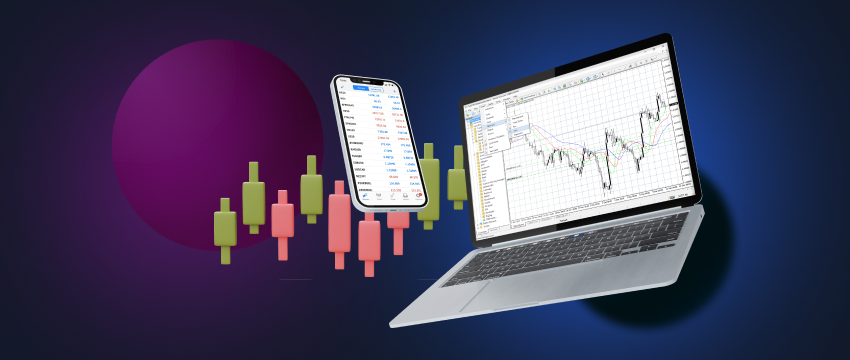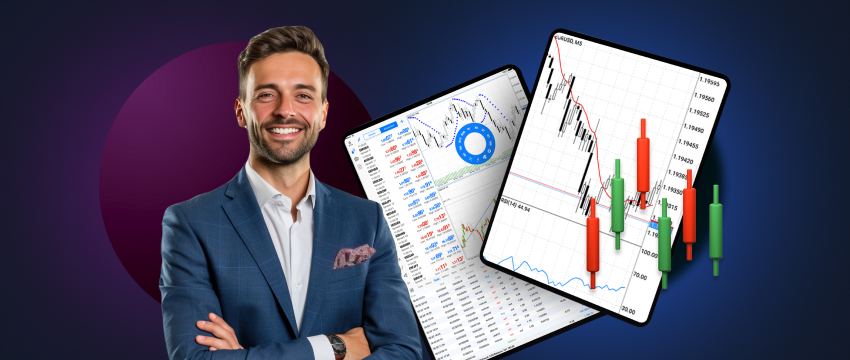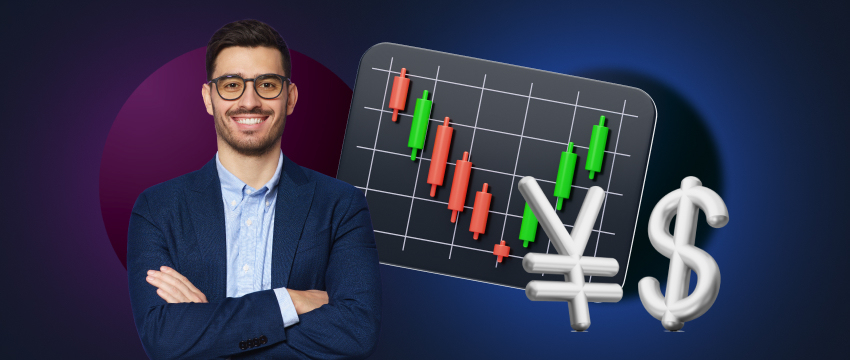The MetaTrader 4 (MT4) platform launched almost two decades ago. It has become a fixture in forex trading. Known for its constantly evolving technology, MT4 is a staple. Additionally, it consistently meets the changing needs of global traders.
A brief history of MetaTrader 4 & 5
MetaQuotes Software developed and released the platform in 2005, fundamentally designing it for currency trading. What set the system apart from its competitors was its easy-to-use interface and simple navigation, customisation abilities, live access to market prices, and its swift trade executions.
In addition, MT4 also gained widespread popularity for its algorithmic or automated trading capabilities, and its MQL scripting language with which both traders and developers could create trading robots (Expert Advisors), scripts, and indicators.
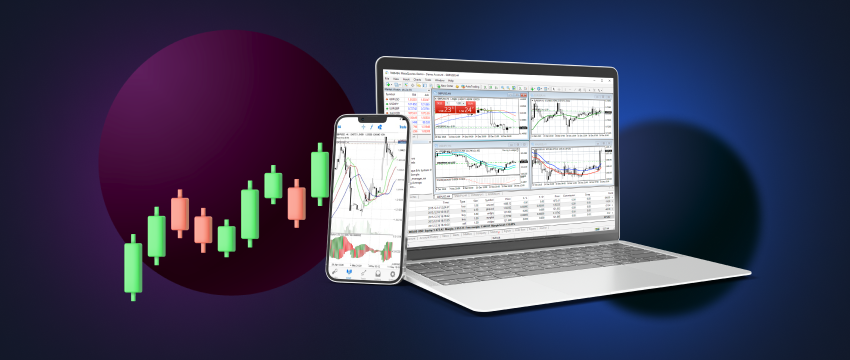
MetaTrader 4 today
Moving ahead to today, MT4 upholds its dominance even with the introduction of newer platforms like MetaTrader 5 (MT5). Users are still drawn to its user-friendliness, reliability, dependability, security، و strong community backing.
The platform continues to evolve to meet the shifting demands of the trading industry, with CFD brokers providing sophisticated charting tools, educational materials, and integration with other trading systems.
Furthermore, MT4’s strong community of traders across the globe are one of its greatest assets. Thousands of forums, online groups, and educational resources are dedicated to helping traders get the most out of the platform. This extensive support network ensures that users can find solutions to their problems quickly and effectively, which is of vital importance for a system that manages live trading and real money.
Comparisons with MetaTrader 5
MT5 offers several enhancements over MT4 which include:
- wider range of tradeable instruments for multi-asset traders.
- more timeframes, المؤشرات الفنية, and analytical objects.
- additional chart types as well as greater precision and more options for marking up your charts.
- advanced strategy tester with a greater capacity to handle large backtest projects.
- new statistical functions.
Another notable difference between the two platforms is the programming language. MT4 uses MQL4 while MT5 uses MQL5. Although MQL5 is more powerful and versatile, many traders prefer MQL4 due to its simplicity and the vast amount of existing code and resources available.
Regardless of the aforesaid, many traders remain loyal to MT4. This is primarily due to its simplicity, extensive support community, and the incredible number of available indicators و trading robots. Ultimately, the decision between MT4 aand MT5 often boils down to personal preference and specific trading needs.
Current challenges
This is not to say that MetaTrader 4 doesn’t have to contend with any challenges, it does, particularly to remain competitive. This largely stems from the increasing popularity of mobile and web-based trading platforms which necessitates MT4 becoming even more flexible.
Moreso, الأسواق المالية continue to become more complex, necessitating the use of more cutting-edge analytical tools, which newer platforms seek to accommodate.
Future outlook for MetaTrader 4
So, while the MetaTrader 4 platform has not been replaced, it certainly needs to maintain its momentum in remaining a favoured system for currency trading. But what could be done to refine MT4 to ensure it remains relevant in an increasingly digitalised tomorrow?
- For one, MetaQuotes Software could consider adding more advanced analytical tools و indicators to meet the needs of professional traders.
- Another key focus area could optimising the alignment between the platform’s mobile trading version and the desktop capabilities.
- Making sure that new financial products are compatible as well as integration with other platforms and tools is also vital.
- Furthermore, offering more extensive educational resources could be another way to gain a competitive advatage.
- Security is another area where MT4 must remain cognisent. As cyber threats become more sophisticated, ensuring that the platform remains secure, stable, and reliable is vital. Regular updates and improvements in security protocols are important to maintaining trader confidence.

Picking the right trading platform for you
One of the most practical ways to choose a trading platform is to sign up for a demo trading account. Demo accounts offer a risk-free environment where you can explore the platform’s features, functionality, and overall user experience. Moreso:
- a demo trading account allows you to gain hands-on experience which is invaluable in determining whether the platform is intuitive, easy to navigate, and offers tools that align with your objectives.
- the demo account also allows you to test a variety of trading strategies, regardless of complexity, to see how they would perform under real market conditions.
- with a demo account, you can test out the platform’s features, learn how to use technical and fundamental analysis, evaluate technical indicators and order execution capabilities.
- a demo account is also a great way to learn how to implement risk management techniques in that you can set up stop-loss and take-profit orders and play around with leverage, without the risk of losing your own capital.
- for a beginner trader, a demo account gives you the time and peace of mind to build the confidence and skills you need, before moving to a live trading environment.
- it also offers a way to assess the level of customer support you will receive from the platform, should any issues or queries arise.
Other ways of picking a trading platform is through user testimonials and expert opinions. Do some research, listen to or read what your industry peers have to say. One can’t ignore the fact that bias will undoubtedly exist and that there’s no perfect trading system. So, once you’ve discovered as much as you can, then register for a demo account and establish whether the reviews have any merit.
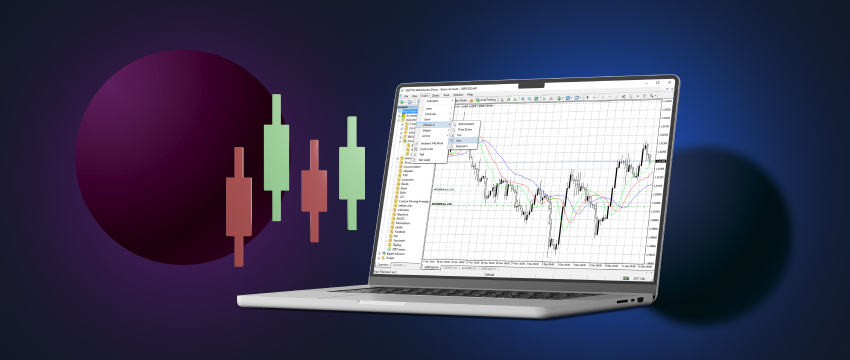
Choosing a forex broker
Picking a trading platform is only one part of your trading journey. Choosing a forex broker that best aligns with your trading goals and needs, and which offers the MetaTrader 4 platform is an important piece of the pie. To do this requires extensive research and the consideration of certain crucial factors like:
- Is the broker regulated by a reputable financial authority?
- Does the CFD broker have any history of fraud or unethical practices?
- Do they offer a trading platform that will cater to your goals, budget and risk tolerance?
- Does the forex broker offer different account types to suit various trading styles?
- Consider how quickly and easily withrawals or deposits are executed.
- Do they offer top-tier customer support and via what channels? Do they ensure support in your preferred language?
- What type of educational resources does the broker offer and are they available for free or at a cost?
- What type of trading instruments does the broker offer?
- Do they abide by stringent regulatory requirements to safeguard your funds?
Once you’ve conducted your research thoroughly and picked your choice of forex broker and platform, you can then look to engaging in some trading related education to ensure your knowledge is at a level that will ensure an informed trading experience.
Remember, learning should be ongoing, particularly with the speed at which trading, technologies, and platforms are evolving.
Unless you keep ahead of all current news, you’ll fall behind, likely resulting in poor trading outcomes and significant loss of funds. This applies, regardless of whether you are a beginner trader or an experienced professional.
Why trade with T4Trade?
T4Trade is a popular global CFD broker offering a wide range of trading related services. The T4Trade MT4 platform provides access to over 200 tradeable instruments across six asset classes. T4Trade also offers competitive spreads, flexible leverage, fast withdrawals/deposits, and multilingual customer support.
إخلاء مسؤولية: This material is for general informational and educational purposes only and should not be considered investment advice or an investment recommendation. T4Trade is not responsible for any data provided by third parties referenced or hyperlinked in this communication.
